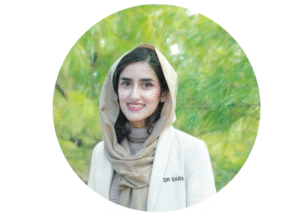Quick checklist of high blood pressure
The early signs of hypertension often have no symptoms. However, if you notice any of the following signs, see your doctor.
- Headaches
- Shortness of breath
- Nosebleeds
- Chest pain
- Dizziness
- Nausea
- Vomiting
- Blurred vision or other changes in eyesight
- Anxiety
- Confusion
- Buzzing in the ears
- Irregular heartbeat
What is high blood pressure?
High blood pressure, or hypertension, is a common condition that impacts the body’s blood vessels, particularly the arteries. It occurs when blood consistently exerts excessive force against the artery walls, causing the heart to work harder to pump blood.
Blood pressure is measured in millimeters of mercury (mm Hg). Usually, hypertension is diagnosed when a blood pressure reading reaches 130/80 mm Hg or higher.
The American College of Cardiology and the American Heart Association divide blood pressure into four general categories. Ideal blood pressure is categorized as usual.
- Normal blood pressure: means blood pressure is under 120/80 mm Hg.
- Elevated blood pressure: is when the systolic number is between 120 and 129 mmHg, while the diastolic number remains below 80 mmHg.
- Stage 1 hypertension: is marked by a systolic (top number) consistently ranging from 130 to 139 mmHg, and a diastolic (bottom number) between 80 and 89 mmHg.
- Stage 2 hypertension: is diagnosed when the systolic blood pressure is consistently 140 mmHg or higher, or the diastolic blood pressure is 90 mmHg or higher.
What are the common causes of high blood pressure?
Primary hypertension is caused by a mix of genetics, lifestyle choices, and aging. In contrast, secondary hypertension has a specific underlying cause, such as issues with the kidneys or adrenal glands.
The main causes of high blood pressure include:
- Leading a sedentary lifestyle (doing little or no exercise)
- Being overweight or obese
- Eating a diet high in salt
- Consuming more alcohol than recommended
- Developing tumors in the adrenal gland.
- Having blood vessel problems from birth, also known as congenital heart defects.
- Taking certain medications such as decongestants (pseudoephedrine), NSAIDs, some oral contraceptives, systemic corticosteroids, certain antidepressants, stimulants, and illicit drugs (cocaine, amphetamines) can influence your blood pressure. Always consult your healthcare provider before starting any medication if you typically have high blood pressure.
- Having kidney disease
- Having obstructive sleep apnea.
- Having thyroid issues
- Having complications of pregnancy
- Sometimes, simply getting a health checkup can cause blood pressure to rise. This is known as white coat hypertension.
What are the factors that increase the risk of high blood pressure?
High blood pressure is linked to many risk factors, including:
- Age: The risk of high blood pressure increases with age. Until approximately age 64, it is more common in men. After age 65, women become more likely to develop high blood pressure.
- Race: High blood pressure is especially prevalent among Black people and generally develops earlier in Black individuals compared to white individuals.
- Family history: increases the likelihood of developing high blood pressure if a parent or sibling has it.
- Obesity or being overweight: can lead to changes in blood vessels, kidneys, and other body parts, often resulting in higher blood pressure.
- Lack of exercise: can lead to weight gain, which increases the risk of high blood pressure.
- Tobacco use or vaping: including smoking, chewing tobacco, or vaping, temporarily increases blood pressure. Tobacco smoking harms blood vessel walls and speeds up artery hardening.
- Low potassium: levels happen when the body does not have enough potassium, which helps regulate salt inside cells. Keeping proper potassium levels is crucial for a healthy heart.
- Stress: can temporarily increase blood pressure, and habits related to stress—such as overeating, smoking, or drinking alcohol—can further raise it.
- Certain chronic conditions: including kidney disease, diabetes, and sleep apnea, may cause high blood pressure.
- Pregnancy: can sometimes lead to high blood pressure.
How is high blood pressure diagnosed?
To diagnose high blood pressure, your doctor will evaluate you, ask about your medical history and symptoms, and listen to your heart with a stethoscope.
The following tests are performed to assess high blood pressure, and your doctor may investigate its cause.
- Ambulatory Monitoring: A more comprehensive blood pressure test involves measuring blood pressure at regular intervals over a period of six to 24 hours, known as ambulatory blood pressure monitoring.
- Lab tests: including blood and urine analyses, are used to detect conditions that might cause or aggravate high blood pressure. These tests typically assess cholesterol and blood sugar levels, and you may also undergo labs to evaluate kidney, liver, and thyroid function.
- An electrocardiogram (ECG or EKG): is a routine test performed on hypertensive patients to rule out organ damage. It is a fast, non-invasive test that records the electrical activity of the heart. It indicates the heart’s rate, whether it beats too quickly, too slowly, or normally. During the test, electrodes are placed on the chest, and in some cases, on the arms or legs. Wires connect these sensors to a machine that prints out or shows the results.
- Echocardiogram: A follow-up test is performed to gain a more detailed understanding of the heart’s structure and function, particularly if an ECG indicates signs of damage. This non-invasive procedure uses sound waves to create detailed images of the heart in action. It shows blood flow through the heart and its valves.
What are the available treatment options for high blood pressure?
Lifestyle changes
Making adjustments to your lifestyle can help you control and manage high blood pressure. Your healthcare provider might recommend some changes, such as:
- Following a heart-healthy diet that includes less salt.
- Engaging in regular physical activity
- Maintaining a healthy weight or achieving weight loss
- Limiting alcohol consumption
- Not smoking.
- Getting 7 to 9 hours of sleep daily
Medications
Patients with high baseline blood pressure and elevated cardiovascular risk benefit from combination therapy. Generally, combining two or more blood pressure medications is more effective than a single drug. However, for some patients, such as those with lower risk stage 1, initial treatment usually involves lifestyle modifications and close monitoring.
Medicines used to treat high blood pressure include:
- Water pills, or diuretics: assist the body in removing sodium and water. They are commonly the first type of medication prescribed for high blood pressure.
- Angiotensin-converting enzyme (ACE) inhibitors: are drugs that relax blood vessels by blocking the production of a natural chemical that causes narrowing. Examples include lisinopril (Prinivil, Zestril), benazepril (Lotensin), captopril, and others.
- Angiotensin II receptor blockers (ARBs) :assist in relaxing blood vessels by preventing the action of a natural chemical that causes constriction, rather than stopping its production.
- Calcium channel blockers: are drugs that relax blood vessel muscles, and some also reduce heart rate.
What steps can be taken to prevent high blood pressure?
Making lifestyle changes can help lower high blood pressure and is beneficial for anyone with hypertension. However, many individuals will still need medication. These adjustments can help prevent and decrease high blood pressure.
- Increase your intake of vegetables and fruits.
- Sit less.
- Be more physically active, which can include walking, running, swimming, dancing,
- Get at least 150 minutes of moderate-intensity aerobic activity or 75 minutes of vigorous aerobic activity each week.
- Perform strength-building exercises at least twice a week.
- If you are overweight or obese, focus on losing weight.
- Take your medicines precisely as directed by your doctor.
- Schedule and keep your appointments with your health care provider.
Check Your Blood Pressure Symptoms Now
Living with high blood pressure
High blood pressure often goes unnoticed until it reaches dangerous levels, with warning signs such as headaches, shortness of breath, nosebleeds, chest pain, dizziness, or an irregular heartbeat. Common causes include obesity, high salt intake, excessive alcohol consumption, smoking, and stress. Other factors, such as family history, age, race, certain medications, or congenital conditions, can also play a role. If you frequently experience headaches or suspect your blood pressure is elevated, it is essential to consult your doctor and undergo a medical assessment.
Frequently Asked Questions
What is the usual duration of high blood pressure?
If you have primary hypertension, it requires lifelong management with support from your healthcare provider. Secondary hypertension, however, can often be reversed by addressing or eliminating its underlying cause. Your provider will discuss how treatment works and what outcomes you can expect.
What are the potential complications associated with high blood pressure?
High blood pressure can lead to various complications such as heart disease, heart attacks, strokes, heart failure, eye issues affecting vision, and chronic kidney disease. Managing and treating high blood pressure is essential to prevent these health problems.
Why does hypertension frequently show no symptoms?
High blood pressure, defined as a consistently excessive force of blood against artery walls, usually does not cause noticeable symptoms on its own. Over time, this ongoing pressure damages the artery linings through small tears. Fats and cholesterol can accumulate in these damaged areas, leading to the buildup of plaque and the narrowing of the vessels. This process reduces blood flow throughout the body, causing the heart to work harder to pump blood.
Does high blood pressure lead to fatigue or dizziness?
Yes, high blood pressure can sometimes cause fatigue or dizziness, particularly if it is very high or varies. These symptoms might also be linked to medications or other health issues, so it’s essential to talk with your healthcare provider.
What are the emergency symptoms of dangerously high blood pressure?
Seek immediate medical attention if you experience symptoms such as chest pain, severe headache, vision changes, shortness of breath, confusion, or nausea, especially with a blood pressure reading exceeding 180/120 mm Hg. These could be signs of a hypertensive crisis, which may lead to loss of consciousness, stroke, heart attack, or other severe complications.


